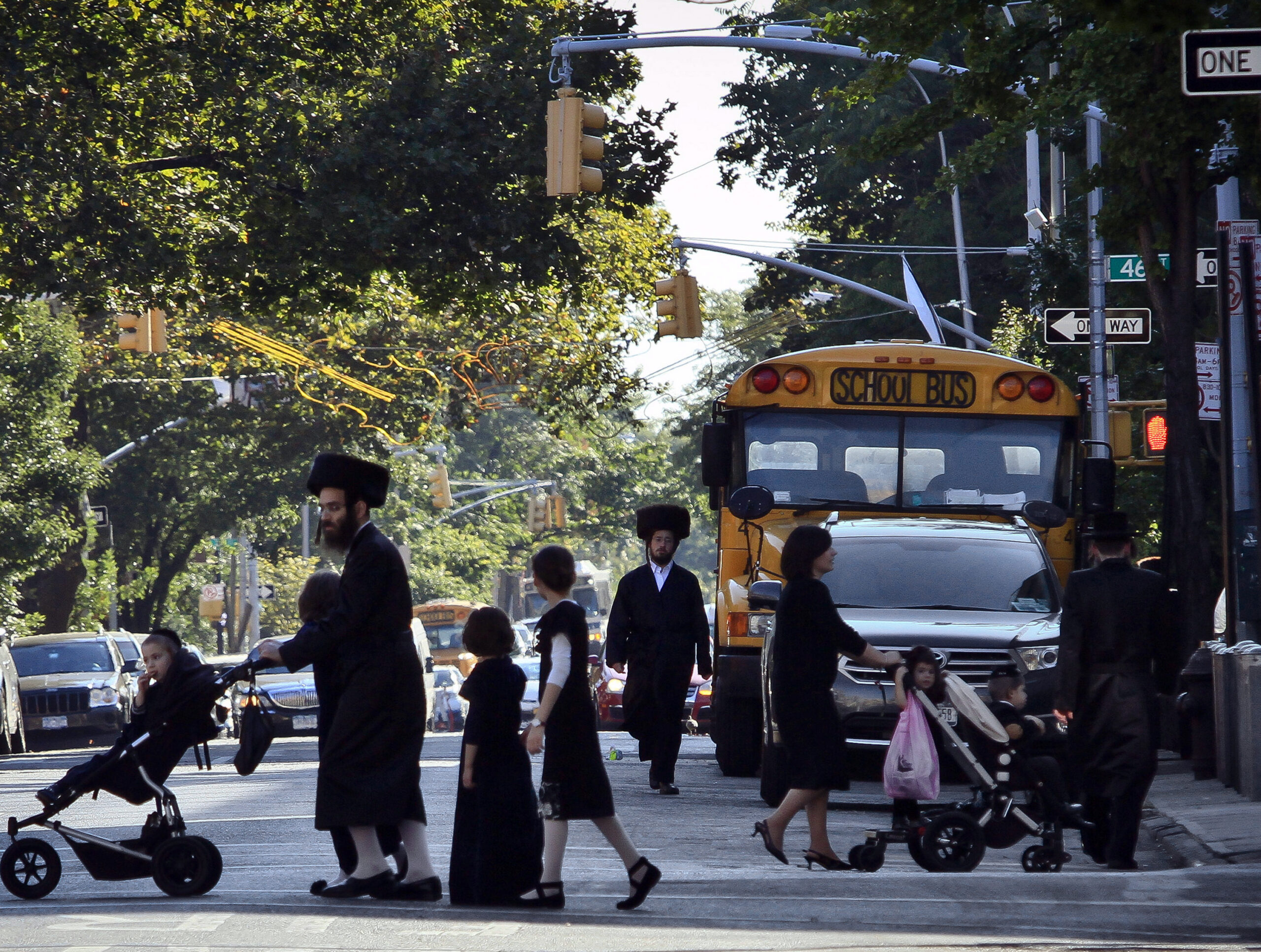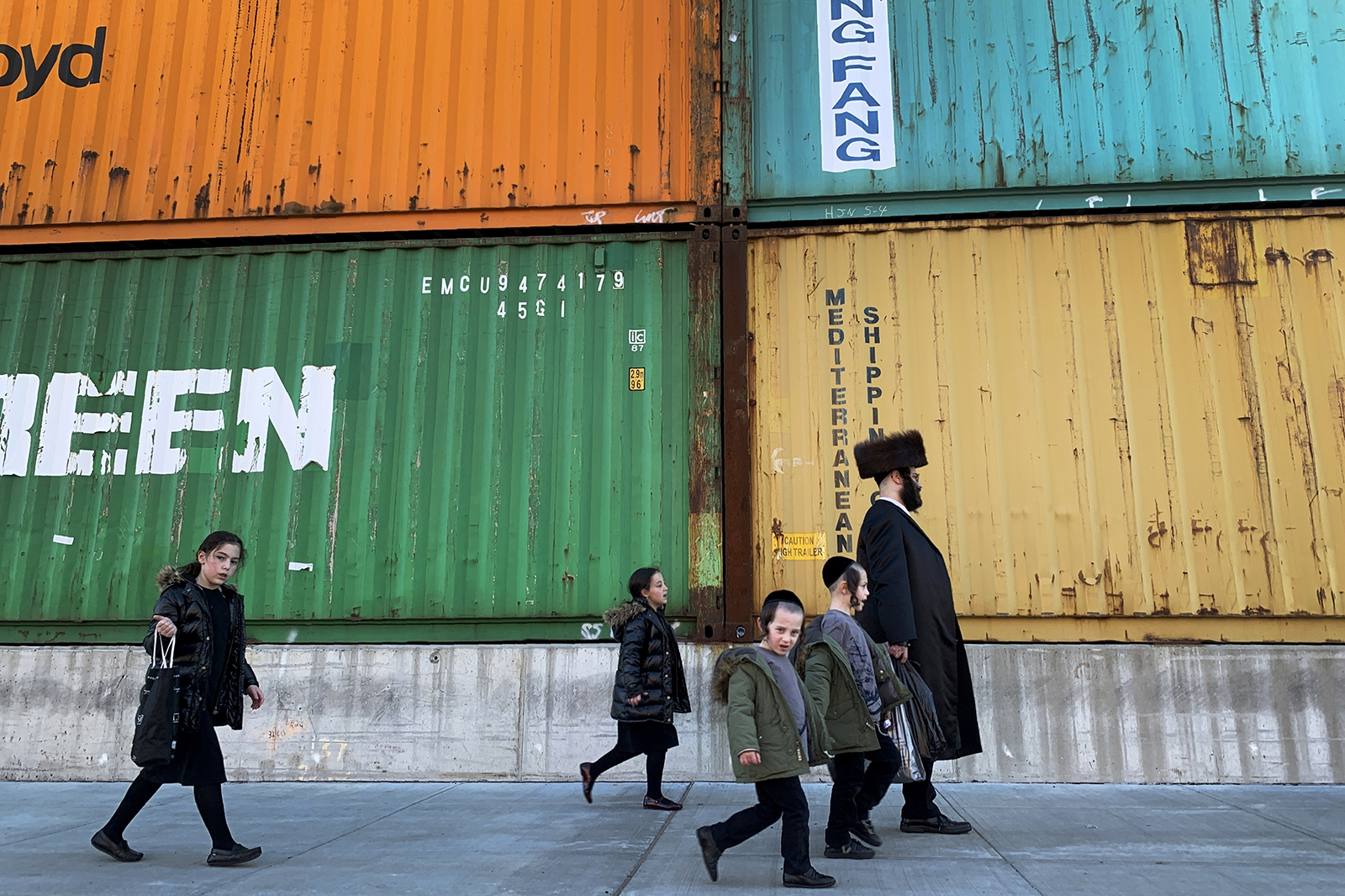(RNS) — It might have been her Germanic accent that evoked my blunt response. I can’t say for sure.
More than 40 years ago in the suburban Northern California neighborhood where my wife and I were living then, I was wheeling our two young daughters in a double stroller outside a supermarket. The lady looked at me disapprovingly and said with a sneer, “I see you don’t believe in zero population growth.”
Where my rude retort came from, I can’t say either. “When we reach 6 million,” I said, with the fakest of smiles, “we’ll consider stopping.”
My wife and I went on to have other children, some of them bearing the Jewish names of relatives who died at the hands of Hitler and his henchmen in World War II.
I was reminded of this moment while reading a review of “Hannah’s Children: The Women Quietly Defying the Birth Dearth,” by social scientist Catherine Pakaluk, who interviewed 55 college-educated women who were raising five or more children. Pakaluk describes the joys of raising children, a nearly countercultural stance in a society that seems to emphasize the plight of beleaguered parents more than the deep sense of fulfillment children grant us.
There are the sleepless nights and seemingly incessant diaper changes, followed by chasing toddlers and the trials presented by adolescents. There are strains in some households over which parent does what, and the material demands of children. As a member of the Haredi Jewish community, where 10 or even more children in a family is not uncommon, I know the reasons to have abundant children are as complex as those to limit them.

In this Sept. 20, 2013, file photo, children and adults cross a street in front of a school bus in Borough Park, a neighborhood in the Brooklyn borough of New York that is home to many ultra-Orthodox Jewish families. (AP Photo/Bebeto Matthews, File)
My waspish reply four decades ago notwithstanding, “replacing” some of those murdered during the Holocaust — or, at least, perpetuating their memory — is of course only part of why Orthodox Jews, especially Haredi (sometimes called “ultra-Orthodox”) Jews like my wife and I, have chosen to raise large families. Demographers put the average number of children per Haredi family at between six and seven.
The prime motivator of Orthodox Jews’ choice to aim for large families is Jewish religious law, or halacha, which prioritizes the bringing of new people into the world. While there are situations where birth control is permitted and even advised, those are exceptions that prove the rule.
Aside from the outsiders, like the California lady, who look upon large Orthodox Jewish families with scorn, other look on us with pity. It must be so hard, they may be thinking, to manage so many children.
But Haredi parents are not pitiable. Women are proud of motherhood, and while they may generally have smaller biceps than men, they have other strengths greater than those of males. Caring husbands can and do share in parenting and the housework. Fathers caring for young children or shopping are not an uncommon sight in Haredi neighborhoods.
In the end, it’s life that’s a handful, and challenges come in all guises. I sometimes wonder if each of us is assigned a “quota” of child-related challenges: If a couple has one child, the entire package of assigned angst will emerge from that singleton; if there are many children, the content of the problem packet will be diluted, spread out among the progeny. And, as a result, each challenge will be less urgent, easier to manage.

In this March 30, 2021, file photo, members of the Orthodox Jewish community walk past shipping containers in the South Williamsburg neighborhood of Brooklyn, New York. (AP Photo/Wong Maye-E)
While there may be those, such as the character W.C. Fields inhabited, who dislike children, I think most people would readily concede that a child is a blessing. What they might consider is that blessings are not diminished by their abundance; they are multiplied.
The modern world is decidedly, undeniably materialistic. When someone is heard to be “successful,” the conclusion that he or she has accomplished something truly meaningful is, at best, premature. It usually means that money has been made, and that’s all. So we’re left with an irony: Were children dollars, no one would begrudge anyone a large family.
My wife and I are grandparents now, many times over; our children and their spouses are all Haredi Jews raising families of their own. We haven’t forgotten some of the difficulties or the economic challenges that attended our young family days. But what remain with us most prominently from our child-rearing years are things like the profound (often profoundly funny) observations our new-to-language youngsters came up with, and the wonderful experiences we shared with our children at all ages. We recall the flood of feeling that came with an unexpected hug.
Our children-turned-parents amaze us by “how well” they turned out and how close they remain to one another. They will readily tell you they may have kvetched here and there but didn’t much suffer for their multiple siblinghoods. There were things that they didn’t get to experience or own — no overseas trips, oversized dolls or overpriced action figures. No latest clothing fashions or expensive shoes. Somehow, they survived.
What they did have, though, were real, live babies to help care for (and from whom they learned about responsibility, something that came to serve them well). They never lacked someone on hand to boost them up to a tree branch, or a pair of someones to hold the ends of a jump rope. They had sibling roommates to shmooze with late at night and handy choirmates on call, ready to belt out or harmonize any selection their spirits moved them to sing. They were happy, despite — I’d argue, because of — their siblings.
We remain grateful for the precious souls with which we were entrusted. And we prayed that God guide us to make the right decisions as we raised them, and that God protect them.
It might seem strange for a Haredi Jew to be moved by a gospel-style piece of music, but Bob Dylan’s achingly sung words have always resonated with me:
As his youth now unfolds
He is centuries old
Just to see him at play makes me smile
No matter what happens to me
No matter what my destiny
Lord, protect my child
The whole world is asleep
You can look at it and weep
Few things you find are worthwhile
And though I don’t ask for much
No material things to touch
Lord, protect my child
Lord, protect my children. In the end, after all the sleepless nights, emergency room visits, fussing, fights and tribulations, it’s the sweetness that prevailed.
(Rabbi Avi Shafran writes widely in Jewish and general media and blogs at rabbishafran.com. The views expressed in this commentary do not necessarily reflect those of Religion News Service.)





